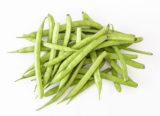The WTO Rules of Origin Agreement requires WTO members to ensure that their rules are transparent; that they do not have restricting, distorting or disruptive effects on international trade; that they are administered in a consistent, uniform, impartial and reasonable manner; and that they are based on a positive standard (in other words, they should state what does confer origin rather than what does not).
In the case of Brexit, the United Kingdom will become a third country where rules of origin will apply for trade between the UK and the EU, whether as part of the WTO agreement on rules of origin, or a FTA between the UK and the EU.
Until a trade agreement is settled between the EU and the UK, trade would be conducted on a most-favoured nation basis where non-preferential rules of origin will apply. (In the Agreement on Rules of Origin, WTO members agreed to negotiate harmonized non-preferential rules of origin. These negotiations have not been concluded).
Under Commission regulation 952/2013, article 60, goods wholly obtained in a single country or territory shall be regarded as having their origin in that country or territory. Goods the production of which involves more than one country or territory shall be deemed to originate in the country or territory where they underwent their last, substantial, economically-justified processing or working, in an undertaking equipped for that purpose, resulting in the manufacture of a new product or representing an important stage of manufacture.
The Commission is faced, in their FTA negotiations, with different positions from third countries. Generally, the European Dairy Association (EDA) is of the position that a common threshold for all FTA negotiations should be pursued. However, Brexit is a special case, and since the EU and the UK/GB today share common rules, the EDA is of the position that the future trade relationship between the two parties should be kept as close as possible to the situation prevailing today.
This would imply that the EU and the UK agree to a cumulation for the EU–UK dairy trade intended for export. For import to the EU-UK the two parties would maintain common rules, leaving the situation as today. The UK (and the EU) would, in its future FTA negotiations with third countries, need to make sure to have the EU-UK cumulation recognised by these third countries, as well as setting uniform external rules.
The EDA in general believes that creating special rules for each FTA should be avoided, as it makes business life complicated, so, as mentioned above, the future trade relationship between EU and the UK should be addressed accordingly. Therefore, in the case of a free-trade agreement being discussed between the parties, the EDA is of the opinion that the rules for internal EU-UK trade should be subject to cumulation and the following rules of origin should apply both by the EU and the UK towards third countries.



